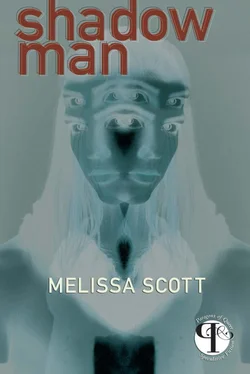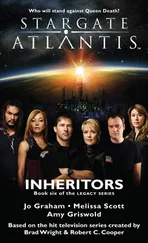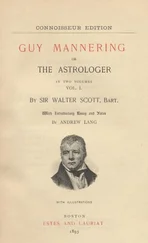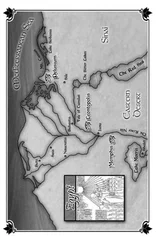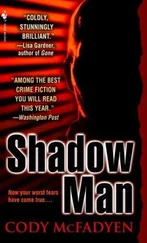“I do,” Tatian answered. “We’re well within the law—hell, what they’re asking is illegal, not anything we’re doing. And I don’t think we’re going to see another surplus like this for another forty-three, forty-four kilohours.”
“All right,” Masani said. “We’ll do it. I’ll warn the accountants to expect the buy. Get me the final figures as soon as you have them, and I’ll sign the drafts. I assume 3e’ll want a metal payment?”
“Not decided yet,” Tatian said, and δe grunted.
“There usually is. Remember, we need at least five hundred hours lead time for that, and seven fifty would be better.”
“I will.”
“Good. And, Tatian. Nice work.”
δe cut the transmission, leaving the screen streaming with multicolored static, before he could respond to the unexpected praise. He touched the shadowscreen and watched the shutdown procedures flicker across his desktop, wincing at the charges that appeared in the accounting screen. Interplanetary communication was painfully expensive; at this rate, he thought, he had maybe three calls left for this budget year. He entered the codes that accepted the charges and authorized payment, then made a note in his private file to recheck the communications budget, just to see where the money had gone. There had been two calls when Derebought isolated the guafesi, and— He deliberately shut off those thoughts. It was late, and he was tired; better to deal with that in the morning, he thought, and flattened his hand against the shadowscreen. The machine flashed a last quick series of queries, but he kept his hand flat until the last light had winked out. He flipped on the main security systems, with their seventy-second delay, and walked out the back door to the parking alley.
The rover was still there, the driver curled in his compartment like a mouse in its nest. Tatian tapped gently on the window, and the thin man woke instantly. He came upright in the same moment, eyes focusing first on his board, and then on Tatian himself. Seeing him, the driver relaxed, and reached across to open the passenger door.
“All done, mir?”
“All done,” Tatian answered, and climbed into the passenger compartment.
“Where to, then? Going dancing? I know some good places, even for an off-worlder.” The driver looked at him in his mirror, his grin showing badly patched teeth.
Tatian shook his head. “Not tonight. Just home—EHB Three.”
Everyone knew the compounds where the majority of the off-worlders lived. The driver nodded, and slipped the rover into gear. Tatian leaned back in his seat, aware for the first time of just how tired he was. Not that it was that late, really—barely past two—but it had been an active day. And, he admitted, with a quiet smile, an exhilarating one. If everything worked out, if he could keep the IDCA at arm’s length and trade Reiss’s statement for the surplus contract—well, at the least, he would certainly earn one of the Old Dame’s generous bonuses, not to mention put himself well ahead in the promotions stakes.
The rover slid out of the alley, turned onto the ring-road that carried traffic around the maze of linked courtyards that made up the Estrange. From the top of the slight hill, he could see between the buildings to the harbor; the lights seemed brighter than usual there, and he wondered if some of the harvest was in. Then he realized that the light wasn’t steady and was much too orange for the usual working lights.
“Fire?” he said, and the driver slowed.
“I heard sirens earlier, mir,” he volunteered. “They were heading toward the docks—toward Dock Row, the north end. Do you want to take a look?”
Tatian shook his head, though he was tempted. “Just home,” he said again, and thought the driver looked disappointed.
“Right, mir, EHB Three it is.”
“Thanks.”
There was more traffic on Tredhard Street, most of it going away from the harbor. Tatian squinted through the doubled glass of passenger compartment and driver’s screen and thought he saw barriers pulled across the road at the base of the hill, barring traffic from the Harbor Market. People in uniform were standing there, not firefighters in their silver, but the dull black of the mosstaas ; he imagined he could smell smoke in spite of the rover’s filter, but couldn’t see the flames.
“Something’s burning for sure,” the driver said. “In Dock Row, it looks like.”
Tatian nodded, still staring down the badly lit street. If it was in Dock Row proper, the off-world warehouses should be safe enough, since they stood at the north end of the street, clear of the Market. Dock Row itself was mostly bars and dance houses—the center of trade, he realized suddenly, and shivered in spite of the warm evening. If someone was striking back at trade, Dock Row and its bars were a good place to begin. He shoved the thought away. There was no point in speculating until he knew what had actually happened—for all he knew, someone had been careless with a stove, or lightning had struck, some natural disaster. In the mirror, he saw the driver shake his head.
“I’m going to have to go the narrow way, mir, by the Soushill Road.”
“Fine,” Tatian answered, and a moment later they were in shadow again as the rover turned onto the smaller street. Soushill Road was mostly small shops, chandlerys and hardware, and the occasional software broker or satellite tracker, all closed down against the night. Even the streetlights were out; only the occasional dot of an alarm system glowed in the corner of a doorway. The driver muttered something and switched his lights to high.
Then, from nowhere, came the snarl of an engine. A massive shay shot from an alley and swung skidding into Soushill Road. The driver swore, jamming on his brakes, and Tatian caught himself stiff-armed against the partition separating him from the driver’s compartment. Pain flared in his arm, along the lines of the faulty implant. He caught a glimpse of the shay’s open body, of the dozen figures in it, black-robed, black-hooded, faces hidden by blank white masks like the faces of unfinished dolls. One of them lifted an empty ring, also white, white as bone, lifted a white feather-tipped stick and mimed striking the empty air, as though he—she? ρe? δe? 3e?—beat an invisible drum. He was still drumming, white-gloved hands holding the empty drum frame overhead, as the shay skidded around another corner and vanished completely.
“What the hell was that?” he demanded, and cradled his arm against his chest, trying not to jar the implant box.
“I—don’t know, mir. Never seen anything like it.” The driver’s voice was frightened, and the eyes that met his in the mirror were wide and staring. “Never at all.”
You’re lying , Tatian thought, and could not have said what made him so sure of it. But whatever they were —he conjured the black-robed shapes again, the white masks and gloves and the invisible, frantic drum— whatever they were, whoever they were, you knew them . You knew what they meant . “Take me home,” he said aloud, knowing better than to press the issue, and leaned back against the padding. Reiss would know, or Warreven; he would ask one of them in the morning.
Odd-bodied: (Hara) colloquial generic term for herms, mems, and fems.
The fire on Dock Row made the narrowcast news on both the port and the local channels. Tatian set the system to search-store-and-replay and watched the stories as he dressed, but there was no mention of the black-robed figures. The local channels displayed vivid pictures of silver-suited firefighters, bright against the flames, but said little about damage or causes, noting only that two bars had burned and no one had been reported killed. The port system named the bars—Tatian didn’t recognize either of the names—and estimated that the damage would force them out of business. The newsreader, a plump, pretty woman with an expressive voice, carefully controlled, added that the mosstaas was looking into the cause of the fire. Which means, Tatian thought, that it was arson. He saw again the figures in the back of the shay, the white hands and the white drum, and wondered if they’d had anything to do with it. They had certainly looked menacing enough, but on Hara, who could tell?
Читать дальше
